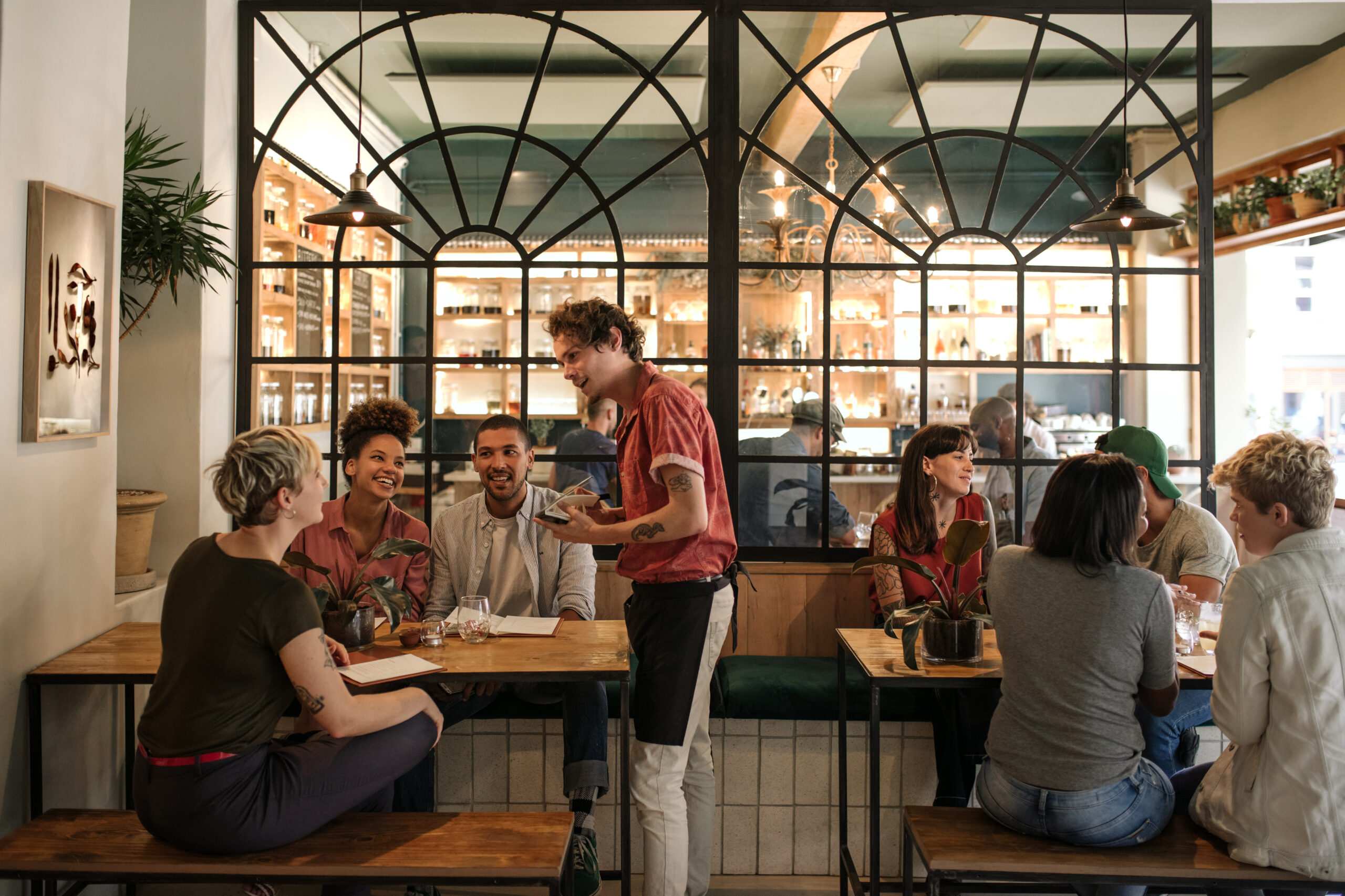
Key points:
- Retailers can take inspiration from hospitality’s efforts to band together
- Collaboration can improve operational efficiency, productivity and brand loyalty
- Start small and set the ground rules early to ensure an effective partnership
Sectors such as hospitality are scaling collaboration efforts as they face increasingly challenging trading conditions – should retailers take a leaf out of their menu?
High quality service, building brand loyalty, and coping with seasonal demand changes are some of the common traits of hospitality and retail.
But in the current tough business environment, for both sectors, these elements have become obstacles that are proving very difficult to overcome alone.
Retail turnover, which includes restaurants and cafes, rose 0.7 per cent in August 2024, according to the Australian Bureau of Statistics (ABS), while turnover, which was flat for much of the year, has edged up 3.1% across the 12 months to August, seasonally adjusted.
Retailers have also been recalibrating wages by 3.75% to a total of 4.25% from 1 July 2024, which includes the 0.5% increase in Superannuation Guarantee Rate.
As the Australian Retail Association’s CEO Paul Zahra noted in June, wage increases without productivity improvements place businesses under pressure and can ultimately lead to price increases.
It’s a confronting landscape that requires different thinking.
Teamwork makes the dream work
Hospitality leaders responded by banding together, earlier this year launching the Australian Restaurant and Café Association (ARCA), backed by high profile chef Neil Perry.
It seeks to influence policy and government, arguing that more national advocacy voices are better for the sector, even with an existing industry body in Restaurant and Catering Australia.
Could the retail sector develop a similar body to advocate alongside the Australian Retail Association?
A new national body might be a daunting prospect, but retailers don’t necessarily need to think on that scale. Co-operation at a state level or even within a local community might influence government policy at those levels.
A little teamwork could unlock innovations on everything from the digital transformation and the evolution of the physical shopfront to lifting productivity, tackling high operating costs and addressing shifting trends in brand loyalty.
When it comes to loyalty, consumer optimism is at an all-time low and that hasn’t helped ignite any fervour for brands. For some, it’s a lingering hangover that stretches as far back as the COVID pandemic, when many consumers ditched loyalty and swapped brands as supply issues emerged.
To combat the lack of customer loyalty, some retailers have invested heavily in their brand and technology, making their in-store and online experience seamless – but this is an all-in strategy that could damage businesses if it doesn’t pay off.
Innovation by allegiance
As retailers put the finishing touches on their plans for Black Friday and pre-Christmas sales, they also recognise that heavy cost cutting may be required if they don’t see an uptick in sales.
Operating costs are one of the biggest issues for business leaders broadly, according to Pitcher Partners’ latest Business Radar report, and retail is suffering heavily from the rising cost of doing business.
In fact, the top four factors cited by the Radar report negatively impacting business confidence were all cost related – operating and labour costs, as well as inflation and interest rates.
Innovation doesn’t have to be groundbreaking, or about working people even harder. That can be counter-productive where employee burnout has become an issue, as it has for around 28% of businesses where productivity has fallen or is unchanged, according to the Radar survey.
A clear purpose is necessary for creating direction for a partnership.
As a starting point, individual retailers should map out their stakeholders, from suppliers and manufacturers to employees and community members, and use this as a platform to consider partnerships and knowledge sharing.
Consider alliances on digital innovations, such as mobile payment systems, or develop loyalty programs that enhance customer experience and build trust with both brands.
Can economies of scale be achieved by teaming up to purchase goods not core to either retailer? Could loyalty systems be developed between local businesses that enhance customer experience and build trust in multiple brands?
Businesses may be able to share physical spaces, equipment, or technology infrastructure to reduce costs, or combine their purchasing power to negotiate better deals with suppliers.
Need more value from market research? Pooling resources with other organisations for local market research might be the execution to deliver insights into consumer trends, obviously without compromising individual competitive strategies.
Or a partnership might be more public facing, such as collaborating with complementary brands, expanding reward options and creating new or unique experiences through a membership or loyalty program that can drive sales.
Establish the ground rules early
Avoid the temptation to shift all the risk onto another party or focusing on initiatives that only benefit the home team. Successful partnerships are those that identify complimentary needs and have a shared vision.
Once a clear direction is set, establish a baseline or benchmarks for each metric. It might be driving sales from a particular locale or increasing referrals, but it needs to be measurable.
Regularly review and analyse data to identify trends and areas for improvement and keep the communication channels open to identify opportunities and address issues.
It may be necessary to formalise the partnership and develop written agreements that outline responsibilities and benefits. This step ensures that all parties are clear on their roles and commitments, which helps to prevent misunderstandings and disputes.
Establishing strategic partnerships can unlock numerous benefits for businesses, from operational cost savings to enhanced customer experiences and increased market insights.
The difficult retail environment currently faced should be a platform for retailers to consider how they can better support each other, as the hospitality industry has done.
Hospitality’s new national alliance should spark a conversation among retailers about innovation, knowledge sharing, working together to create efficiencies and build resilience by supporting each other in navigating challenging times.





